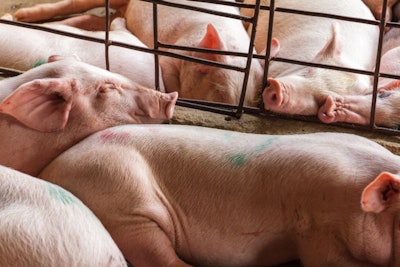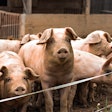
Ministry report may signal the beginning of recovery from African swine fever
China reports its pig herd size has stopped declining, suggesting the start of a recovery from the drastic effects of the African swine fever (ASF) virus.
China’s Ministry of Agriculture and Rural Affairs said in a report last week that “pig production has shown a clear recovery momentum,” with a month-over-month increase in the breeding sow stock of 0.6% in October – the first increase in 19 months.
In October, Rabobank estimated China’s herd loss to be down 50% for the first eight months of 2019 compared with the same period the previous year. Herd loss is expected to reach 55% by the end of 2019.
The ministry’s report also noted a “rapid recovery of large-scale pig farm production,” saying the number of pigs has increased for three consecutive months. It also said the recovery of pig production has expanded.
Regarding pork prices, which have reached highs in recent months, the ministry said prices have fallen for four consecutive weeks, a decline of more than 20%.
According to the United Nations’ Food and Agriculture Organization (FAO), global meat prices increased 4.6% in November from the previous month – the largest monthly rise for more than 10 years. Compared with the 2002-04 average of 100 points, the FAO Meat Price Index reached 190.5 points in November. Although still below the peak in August of 2014, the November 2019 figure is 17% higher than 12 months previously.
Disease prevention and control
The ministry’s report also said regional disease prevention and control measures are being implemented.
“The implementation of zonal prevention and control is of great significance for animal disease prevention and control,” it said. “From an international perspective, regionalized management of animal epidemics is the most common international practice and the most basic experience of disease prevention and control. In particular, countries that have successfully eradicated the African swine fever epidemic have implemented regional prevention and control. Therefore, the implementation of zonal prevention and control in China and the strengthening of transportation supervision are the inevitable choices for effective prevention and control of major animal diseases such as African swine fever, as well as the objective requirements for protecting pig production.”


















